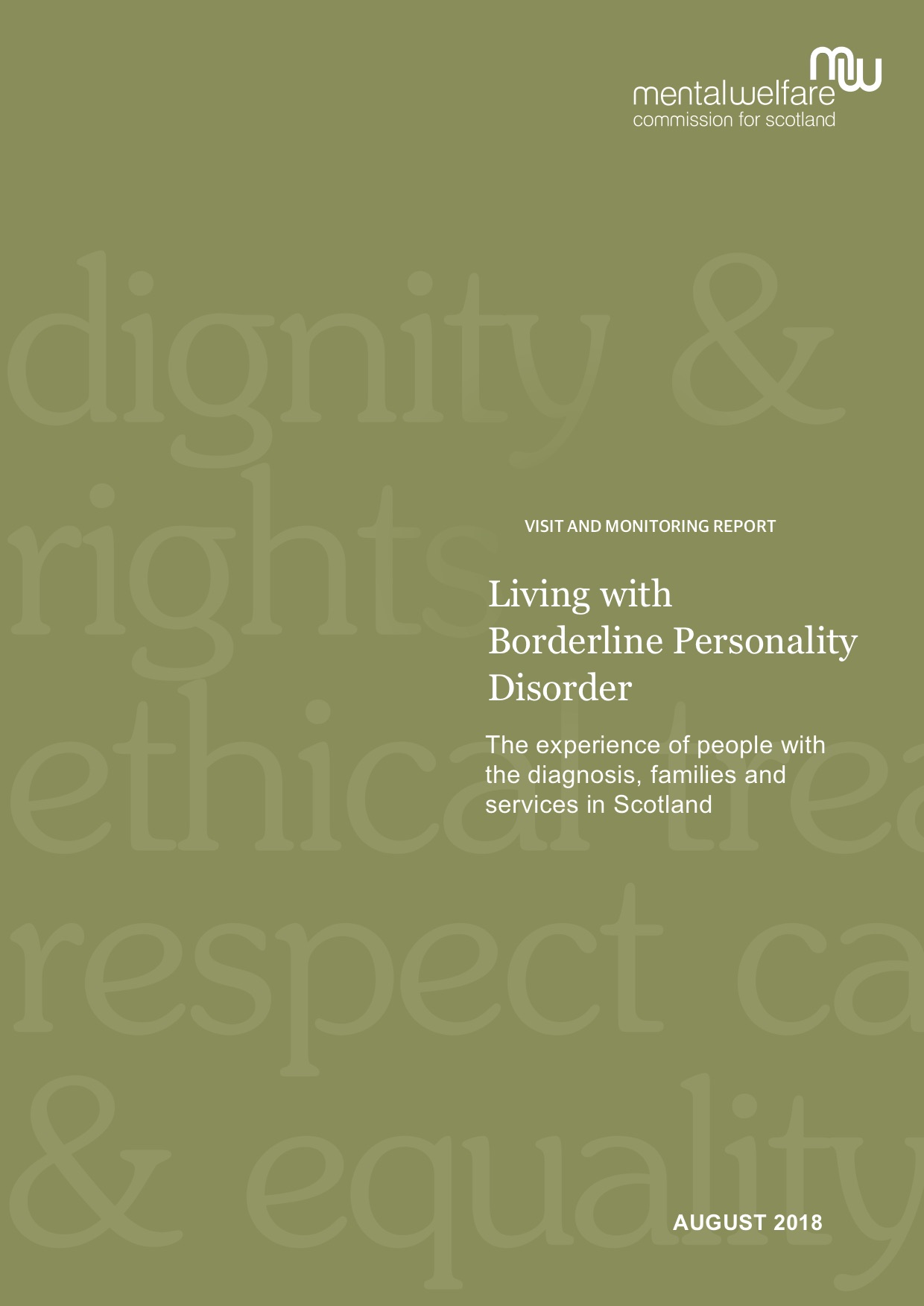BPD is a type of personality disorder with a long-term pattern of unstable relationships with other people, unstable sense of self and unstable emotions.The Commission was aware that people with this diagnosis often have a particularly difficult experience of care and treatment, and wanted to hear directly from those affected.
Commission staff spoke to over 70 people with the diagnosis in Scotland, and surveyed 119 GPs, 110 A&E staff, and 84 psychiatrists. Family members/carers and people providing therapies were also asked for their views. Alison Thomson, Executive Director (Nursing) at the Mental Welfare Commission, said:
We found that stigma is a reality in the lives of people with borderline personality disorder, and its effects can be dramatic. It affects confidence and self-esteem, and it was the most commonly reported issue to trigger a crisis. We found many challenges – services in some areas are not good enough. Addressing our recommendations for change will need a concerted effort by organisations across Scotland.
Key findings include:
- People with BPD reported that they were often treated with less sympathy and understanding by professional staff than people with other mental health diagnoses.
- People’s experience of being given the diagnosis was varied. While there were positive experiences, many spoke of feeling let down in this aspect of their care.
- Psychological therapies were highly valued, but access to those therapies, and waiting times, varied across the country.
- Many people with BPD reported a negative experience of using A&E services, and A&E staff shared their view that these departments were not well placed to meet their needs.
- What people with BPD told the Commission helps them stay well, and what services and professional staff thought about this, often differed.
- Families/carers said that at times the emotional impact of caring for individuals with BPD could be high, including feeling overwhelmed or powerless.
A copy of the report is available here.







